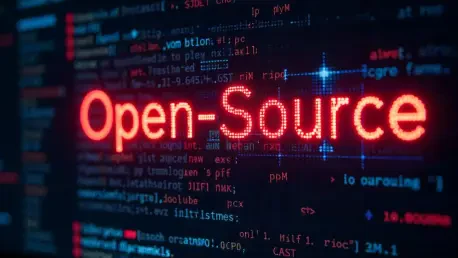Automattic, the company behind WordPress.com, recently made the significant decision to resume its full contributions to the WordPress open-source project after a strategic pause. This pause, which had ripple effects throughout the ecosystem that powers an impressive 43% of all websites, came as a surprise to many within the community. The reasons for this pause are multifaceted, rooted primarily in legal entanglements with a competitor, WP Engine, and posing substantial implications for various stakeholders. The move to cease contributions ignited a broad discussion about governance issues within the WordPress space. Automattic’s temporary withdrawal from significant development contributions revealed underlying tensions between legal obligations and the collaborative ethos central to open-source projects. As the community looks forward, Automattic’s renewed collaborative efforts raise new questions and hopes about the future trajectory of WordPress. This decision, although stemming from potentially contentious challenges, is viewed as a pivotal moment, shedding light on issues of governance, community dynamics, and strategic business decisions.
Legal Battles and Governance Challenges
The pause in contributions by Automattic was significantly influenced by ongoing legal disputes with WP Engine, a competitor in the managed WordPress hosting space. At the heart of these disputes were accusations and counterclaims related to intellectual property rights and competition practices. These legal conflicts placed enormous pressures on Automattic, compelling the company to reassess its involvement in the open-source project temporarily. The legal entanglements illuminated pressing governance challenges within the WordPress ecosystem, inciting scrutiny from community members over how disputes should be managed and whether existing policies were sufficient. In response to these conflicts, discussions intensified around the need for systematic reforms, with some advocating for clearer governance policies to mitigate future conflicts of interest. The situation underscored a complex interaction between legal, strategic, and community-driven considerations, prompting Automattic to walk a delicate line balancing individual company interests with broader community expectations.
As the legal battles unfolded, the WordPress community was compelled to confront broader questions about sustainability, governance, and collaboration within open projects. During Automattic’s reduced involvement, contributions to WordPress notably decreased, leading to delays in scheduled updates and feature releases. This caused considerable concern and debate among practitioners and developers about the project’s future sustainability. Questions about governance arose, with many calling for more transparent practices and independent oversight to ensure the project’s objectives aligned with community values. The reduction of Automattic’s participation also sparked reflections on how open-source projects might shield themselves from similar disruptions, particularly when key contributors are faced with external pressures. Viewing the legal challenge as part of a broader governance issue illustrates the intricate dynamics at play and the significant influence a single stakeholder can have on an open project’s development rhythm and vision.
Strategic Recalibration and Community Engagement
Automattic’s decision to reassume a full contributing role in WordPress came after seriously considering strategic imperatives, legal obligations, and community feedback. There is a consensus within the company that for WordPress to remain a cutting-edge platform in global publishing, it must continue to innovate and evolve in partnership with its learning community. During the strategic pause, Automattic gained insights that have informed a recalibration of its approach to project involvement. Balancing commercial interests with broader community goals has been a strategic shift capturing the company’s renewed commitment to the WordPress platform. By re-engaging in development, Automattic aims to rekindle its partnership with the community and fortify its role as a catalyst for innovative growth within the open-source landscape.
The move to resume contributions highlights a renewed focus on community involvement and a strategic vision that emphasizes collaboration. With the upcoming WordPress 6.9 release, anticipated to introduce new features such as an admin refresh and AI capabilities, Automattic’s participation is expected to reinvigorate the project’s development pace. Moreover, there are ongoing dialogues about potential reforms to the governance of the WordPress project, often sparked by actions like the suspension of key community figures and calls for more democratic oversight. These discussions are critical for shaping a more resilient and transparent governance model, ensuring the project’s longevity and adaptability in the face of unforeseen challenges. Automattic’s realignment and investment in community-driven development at forums such as WordCamp Europe show a renewed commitment to democratizing digital publishing, suggesting an adaptive strategy that leverages the wealth of ideas and passions harnessed by contributors worldwide.
Future Implications and Strategic Opportunities
Moving forward, Automattic’s re-engagement offers the WordPress community a unique opportunity to address previous challenges and propel the platform towards its next chapter of innovation. The legal conflicts that emerged during the pause have illuminated the necessity for stronger governance structures and improved transparency, both of which are crucial for maintaining community trust and collaborative spirit. Emphasizing shared governance and strategic dialogues can provide a pathway for more effective conflict resolution and decision-making processes. As Automattic continues to navigate its legal and business landscapes, it may also face pressure to redefine its strategies and roles to mitigate similar risks in the future, ensuring alignment with both business objectives and community values. This could mean potential advancements in how Automattic balances its influential position in WordPress with broader, community-centered governance goals.
Looking towards the future, Automattic may seize this occasion to integrate insights from its strategic pause to foster a more resilient and adaptive WordPress environment. Harnessing innovations like AI integration and enhanced user interfaces can expand WordPress’s capabilities, attracting a more diverse user base and paving the way for the platform’s global growth. Additionally, bridging gaps between individual stakeholder interests and the public value created by open-source projects can foster a more sustainable alignment. Navigating the intricacies of open-source governance dynamics will be crucial for Automattic and the wider WordPress ecosystem to adapt to economic, legal, and technological challenges. By capitalizing on these new perspectives and lessons learned, Automattic and its partners can chart a course towards a brighter, more inclusive future for the ever-evolving digital publishing landscape.
A New Chapter in WordPress Development
Automattic, the company responsible for WordPress.com, has recently decided to resume its full contributions to the WordPress open-source project after a strategic pause. This decision affects the ecosystem powering 43% of websites worldwide and took many in the community by surprise. The pause was mainly due to complex legal issues with WP Engine, a competitor, which had significant implications for various stakeholders. Ceasing contributions sparked widespread discussions about governance within the WordPress space. Automattic’s temporary halt in major development contributions highlighted underlying tensions between legal duties and the collaborative spirit essential to open-source initiatives. As Automattic renews its collaborative efforts, the WordPress community faces new questions and expectations about its future direction. This decision, while arising from potentially divisive challenges, is seen as a crucial moment, addressing governance issues, community dynamics, and strategic business choices.









